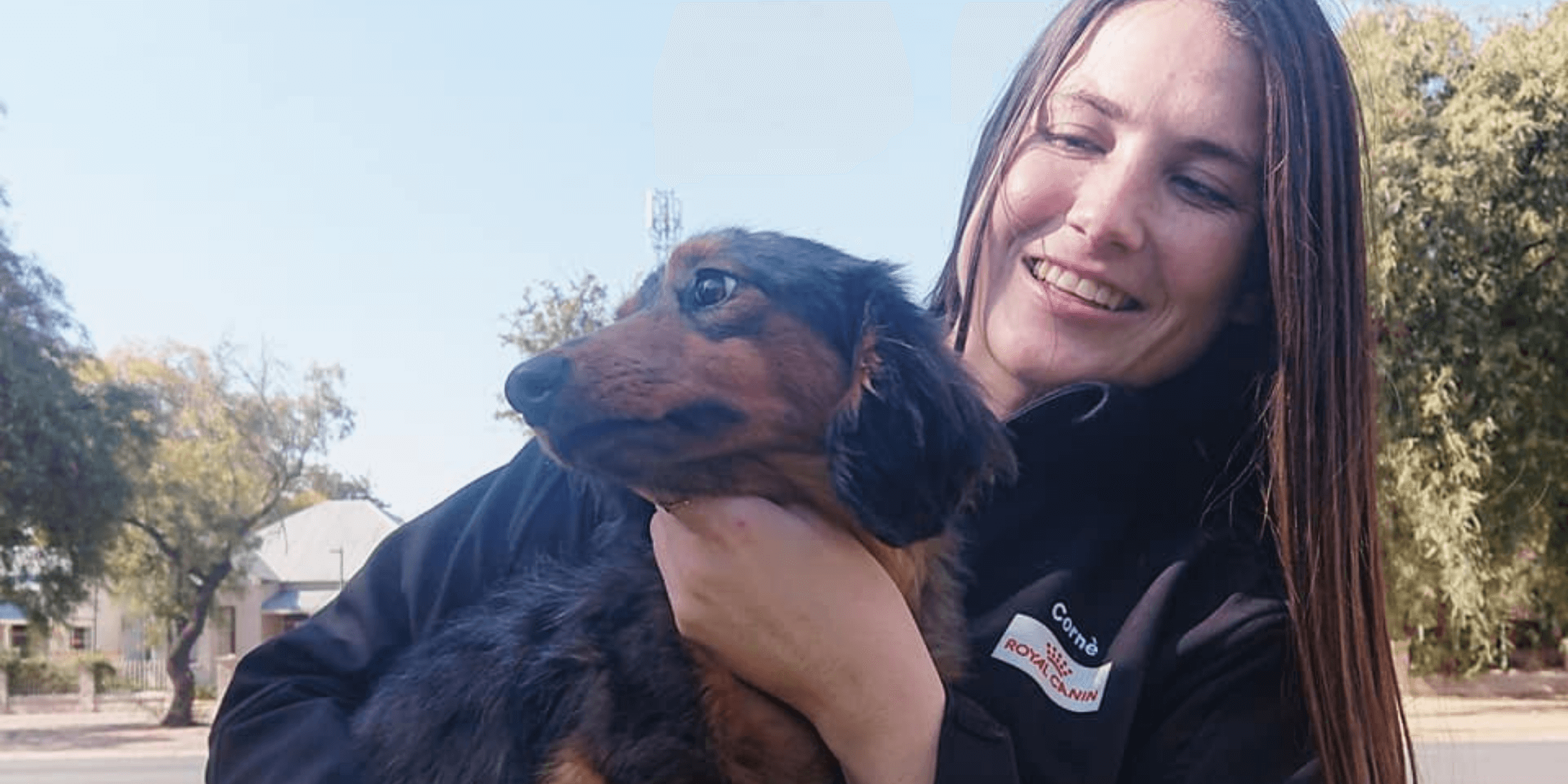IVDD in Dogs – Luna’s Story
Luna is another one of our incredible success stories.
She had been diagnosed with Intervertebral Disc Disease (IVDD) quite some time ago.
She couldn’t use her hind limbs when she first arrived.
After expert veterinary care, daily physiotherapy and endless snuggles, Luna started not only moving her hind legs, but she started walking!
After a long six and a half weeks in our care, Luna has finally gone home to her family.
While we’re sad to see her go, we’re so happy for the time we spent with this miracle pup.
A huge thank you to her mom and dad for trusting us with their special fur-kid and their endless love and support throughout her recovery.
What is IVDD?
IVDD is the degeneration and subsequent herniation of the intervertebral disc which results in compression of the spinal cord or spinal nerve.
Clinical signs of IVDD depend on the type of disc herniation and location in the spine. Starting at the neck and moving toward the tail are five regions — the cervical, thoracic, lumbar, sacral and caudal vertebrae.
Symptoms:
- Limping, lameness or unsteady walking
- Dragging back legs
- Stumbling over back feet
- Hunched back or neck with tense muscles
- Weakness
- Pain
- Unwillingness to jump
- Loss of bladder and/or bowel control (urinary and/or fecal incontinence)
- Difficulty posturing to urinate/defecate
- Paralysis (i.e., complete loss of function in front or hind limbs)
Dachshunds are among the most commonly affected breeds and the chances of getting IVDD are greatly exacerbated if the dog is overweight.
Disc extrusion can happen as early as 1–2 years of age and clinical signs are often acute and severe.
We recommend that dachshund doggos are taught not to jump onto or off of beds or couches and if they are in the habit already, that they are provided with a ramp so that they can clamber along safely.
Let’s keep our dachshunds happy and healthy!
For more information on IVDD in pets, check out the trusted petMD website – https://www.petmd.com/dog/conditions/neurological/c_dg_intervertebral_disc_disease


